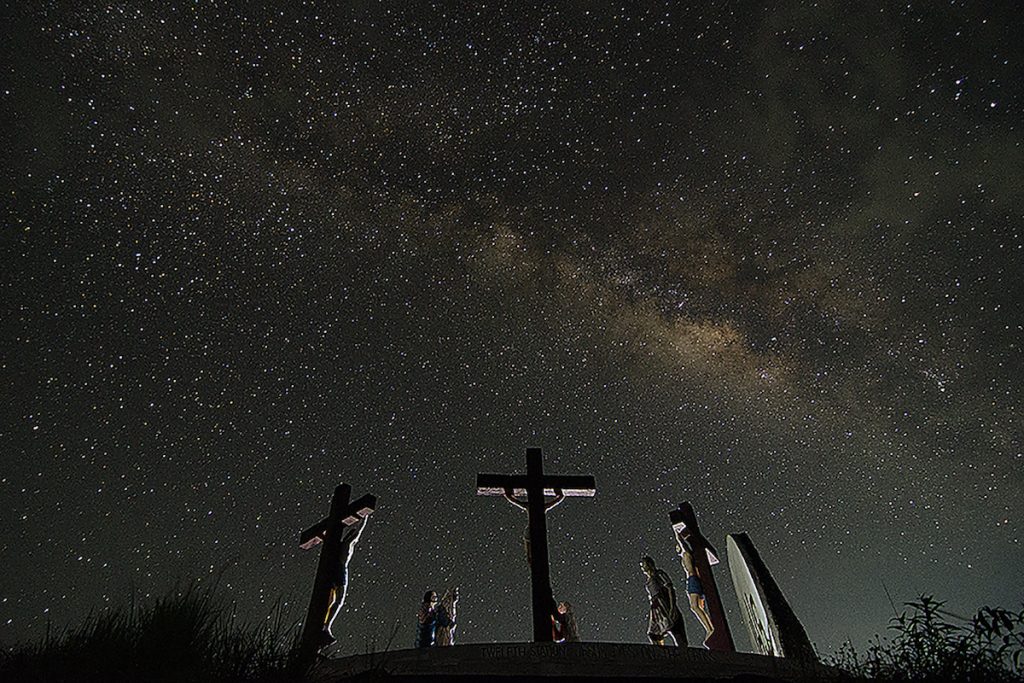“My God, my God, why hast thou forsaken me?” (Matt. 27:46; Mark 15:34)
At no other time than now that this fourth of the seven last words of Christ have become as relevant as ever.
At this time of this world pandemic brought about by the new coronavirus that has infected more than a million people and killed thousands of others, we internalize these words from the bottom of our hearts.
Human as he was, Christ also feared death. But He chose to follow the will of his Father saying: “… yet not my will but yours be done.”
As we commemorate Christ’s passion, death, and resurrection, humanity weeps over the cases of infection and death reaching crisis proportions. Recovery cases pales in comparison with the seemingly endless infections and deaths.
Yet in this dark night of the pandemic, these miraculous stories are sources of hope.
At no other period in our Christianity has our faith been put to an extremely difficult test. It is unfathomable how the Good Shepherd feels when he sees his afflicted flock dying by the thousands on a daily basis in almost every nook and cranny of the universe.
Globally, 209 countries have already been affected. Almost a fourth of these are 47 Asian countries, whose poor majority bear the brunt of the pandemic.
Globally, recorded infections have reached more than a million and Asia has about half a million already, which is almost one third of the total number of cases.
With a record of 8,951 deaths in Asia out of a total 74,767 deaths globally (as of early this week), the statistics of deaths in this region represent 11.97 percent of the global figures.
Millions are at a loss on where to get life’s bare necessities. Daily wage earners have no food on their table. Farmers cannot sell their produce due to lockdown orders in many countries.
Already on a hand-to-mouth existence, workers on a “no work, no pay” arrangement desperately wait for government support that are more often than not, delayed or never comes at all.
They fear more of starvation than the virus. Sick and elderly prisoners in congested detention centers are vulnerable. For the homeless, the “stay at home” order in most countries is alien.
In Catholic Philippines, the cry of hunger is met with an iron fist of repression. Amidst daily losses of lives, President Rodrigo Duterte ironically ordered the arrest of “trouble makers” who do not follow lockdown regulations.
“My orders are to the police and military, also village officials, that if there is trouble or the situation arises that people fight and your lives are on the line, shoot them dead …. Instead of causing trouble, I’ll send you to the grave,” said the president.
The deaths of at least 19 doctors and other front-liners in this war against the coronavirus are exacerbated by the ungrateful stigmatization of some medical practitioners.
“I thirst.” As humanity gropes in the dark amidst this pandemic, it internalizes the fifth of Christ’s seven last words.
How will the Church of the Poor respond to the thirst of humanity? With a huge number of homeless people and with the lack of rooms in hospitals for the sick, opportune is the moment for churches to concretize the corporal acts of mercy by opening their doors to the needy.
What are huge church edifices for if not utilized to shelter the poor, feed the hungry, and care for the sick? Responding to the cry of the little ones of God’s flock in this time of dire need for sanctuary is the call of the day.
Conspicuously so during this Holy Week, Masses are suspended for the first time since the World War II.
Pope Francis, in his Palm Sunday homily, spiritually knocked at our doors, expressed his love for families worldwide:
“I have the chance to enter your homes in a different way than usual … I have in my heart all the families, especially those who have a loved one who is sick or who have unfortunately experienced mourning,” he said.
“We will celebrate Holy Week in a truly unusual way, which manifests and sums up the message of the Gospel, that of God’s boundless love. And in the silence of our cities, the Easter Gospel will resound,” added the pope.
He quoted the Apostle Paul saying: “And He died for all, that those who live should no longer live for themselves, but for Him Who died for them and was raised again.” (2 Cor 5:15)
The call to kindness, unity, solidarity is now. Beyond the untold human sufferings and griefs, let us be certain that the Greatest Healer shall touch and heal humankind.
Together let us work and pray hard for us to experience the joy of the Resurrection. Then and only then will the most-awaited healing, faith renewal and new ways of being shall blossom forth in the not-so-distant future.
With hopes in our hearts, we shall relish the victory of Easter.
Mary Aileen D. Bacalso is a former secretary general of the Asian Federation Against Involuntary Disappearances. For her work against enforced disappearances, she was awarded the 2019 Franco-German Ministerial Prize for Human Rights and the Rule of Law. In 2013, the Argentinian Government awarded her the Emilio F. Mignone International Human Rights Prize.




